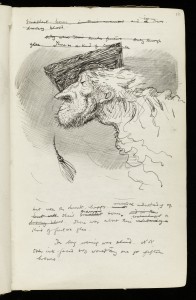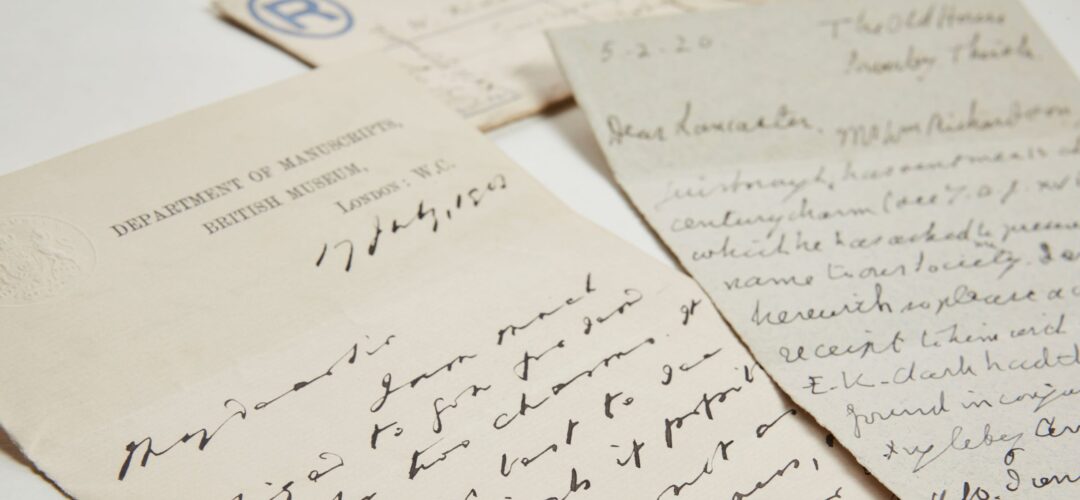
The Group for Literary Archives and Manuscripts (GLAM) was established in 2005 to bring together archivists, librarians, curators, writers, researchers, and anyone else with an interest in the collecting, preservation, use and promotion of literary archives and manuscripts in Britain and Ireland.
Initiated by The John Rylands University Library, The University of Manchester, GLAM is an independent organisation which currently has over eighty members.
GLAM’s initial project – launched in 2006 – was a survey relating to literary archives and manuscripts held in Britain and Ireland.
- To promote awareness and raise the profile of literary archives and manuscripts within the curatorial professions.
- To provide a support network for those who specialise in the field of literary archives and manuscripts, sharing information and giving advice.
- To create a framework for building partnerships to undertake inter-institutional projects relating to literary archives and manuscripts.
- To encourage a collective approach to particular aspects of literary archives and manuscripts stewardship.
- To establish a literary archives and manuscripts network for the purposes of communicating with the wider literary community.
- To develop ways of encouraging and enabling research and learning by developing partnerships with a wide range of audiences in the literary community.
- To encourage cross domain working with rare book librarians, museum curators and others working with collections connected to those in the literary community.
- To engage in dialogue, within the British Isles and internationally, with major institutions, agencies, and organisations with regard to the stewardship of literary archives and manuscripts.
A full copy of the GLAM Constitution 2015 is available here to download.
Rationale and Parameters
GLAM is founded on a strong conviction that literary papers are sufficiently ‘different’ from other archives and manuscripts to justify a special interest group dedicated to their preservation and use.
You can download a document outlining the rationale for GLAM’s formation here. [PDF]
GLAM defines ‘literary’ as creative writing in all genres, whether or not intended for publication, including:
- Poetry
- The novel
- Other forms of fiction (including short stories and novellas)
- Other prose writing, such as essays and letters by or relating to ‘literary’ figures
- Writing for drama, in the theatre, or for radio, television and film
- Life writing, including literary biography, autobiography and self-representation
- The writing of criticism (both theoretical and practical) relating to creative writing, including editing, reviewing and the histories of literature
- The process of publishing or otherwise supporting the production and dissemination of literature
GLAM recognises that literature has no boundaries of language, geography or ethnicity. For practical purposes GLAM is likely to focus its interest on Literatures in English, and the other languages which are indigenous to, or have taken root within, the archipelago of the British Isles (including England, Wales, Scotland, and the whole of Ireland). However, it also takes account of: literatures in other languages which have been translated into English; and foreign language material represented in literary collections held by British and Irish institutions.
The chronological remit of GLAM spans from the end of the Middle Ages to the present. However, the work of the group is likely to focus on the modern period, particularly the 19th-21st centuries.
